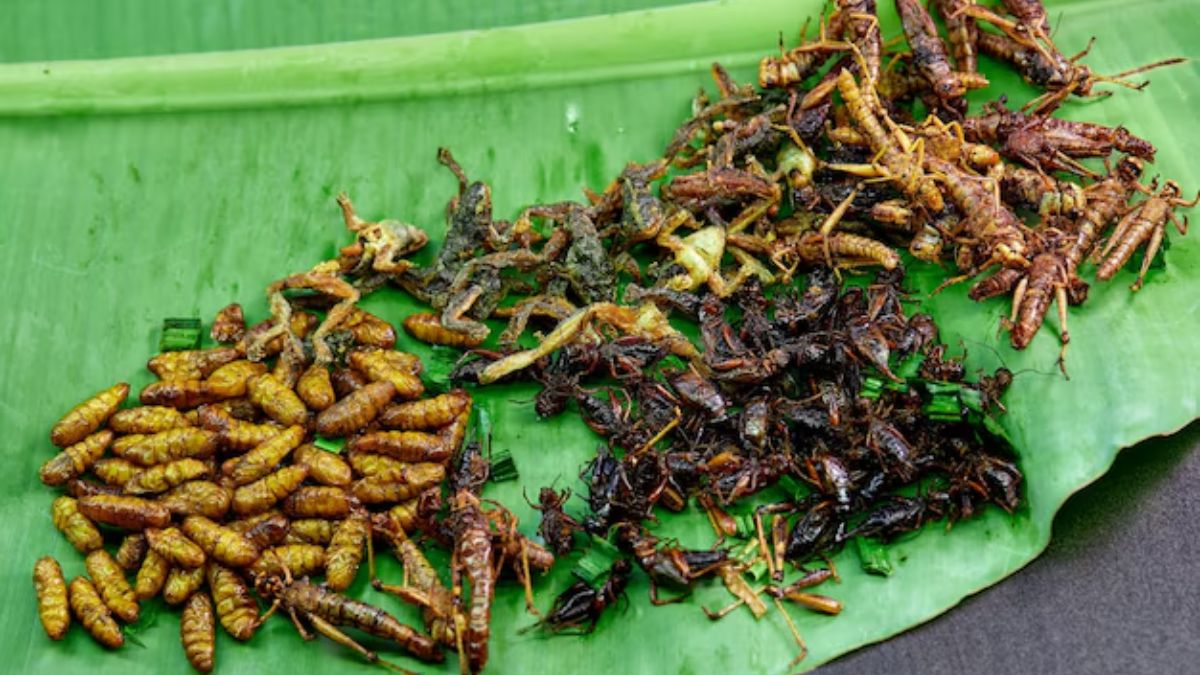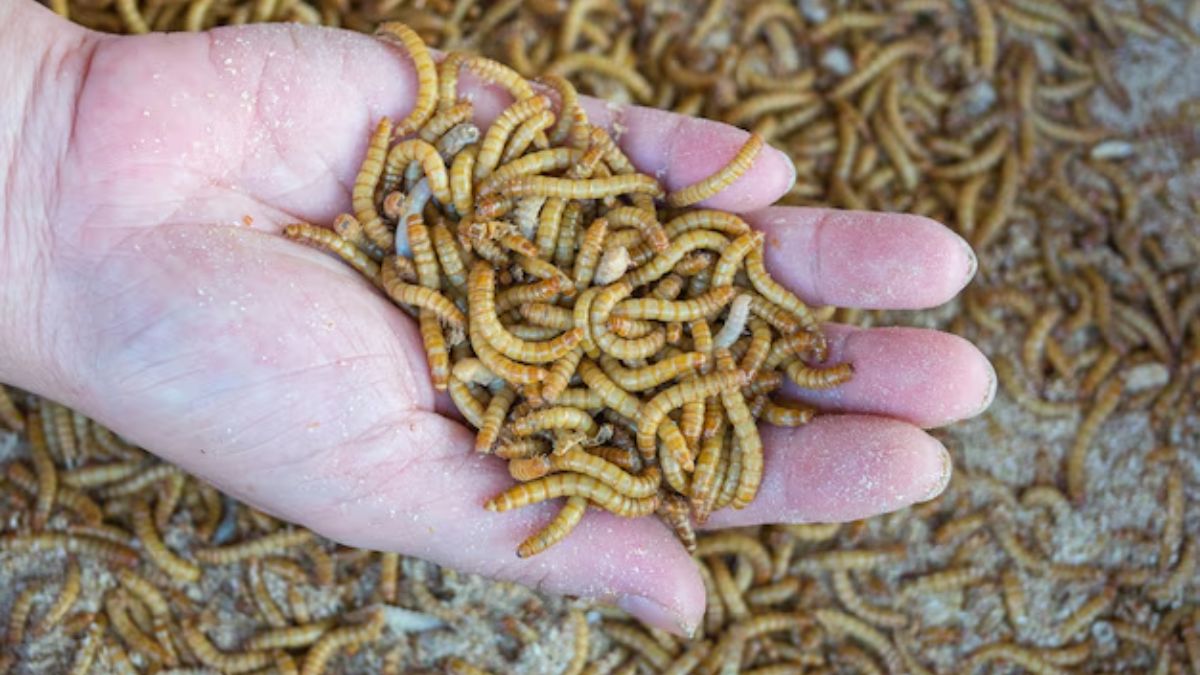
In the recent episode of Raj Shamani’s podcast featuring Krish Ashok, a fellow Youtuber who talks about the science behind food and nutrition claimed that insects are the best sources of dietary protein.
Table of Content:-
This was his response to Shamani’s question about why Asian countries eat insects, to which Ashok replied that insects are 100% protein.
But does that mean that you should consider including insects in your diet? Here's what you need to know.
Health Benefits Of Eating Insects
Insects have been a part of human diets for centuries, but in recent years, they have gained popularity as a sustainable and nutritious food source. According to a study led by Miami University and the University of Massachusetts proponents of entomophagy (the practice of eating insects) argue that insects are a good source of protein, and essential nutrients, and are more environmentally friendly to produce than traditional livestock.

- Insects are a good source of protein, iron, and other essential nutrients.
- Insects are more environmentally friendly to produce than traditional livestock.
- Insects can be raised on a small amount of land and water.
- Insects produce fewer greenhouse gasses than traditional livestock.
While insects are a nutritious and sustainable food source, they may not be for everyone. Some people may be turned off by the idea of eating insects, while others may have allergies to them.
How To Try Insects?
If you are curious about trying insects, there are some ways to do so. You can purchase insect-based snacks online or at some speciality stores. You can also try adding insects to your diet at home by grinding them up and adding them to smoothies or baked goods.
Ultimately, the decision of whether or not to eat insects is a personal one. However, if you are looking for a sustainable and nutritious food source, insects are a viable option, and here are your best 4 options:
Cricket
According to a study published in Frontiers in Nutrition, here are the benefits of eating crickets:
- A good source of complete protein, containing all nine essential amino acids that your body needs.
- They are also a good source of iron, which is important for carrying oxygen throughout your body.
- Crickets also contain calcium, which is important for strong bones and teeth.
Also Read: ICMR Warns Against Protein Supplements: Here's How It Can Harm Your Health

Mealworm
A study published in MDPI’s journal ‘Foods’ found these benefits of eating mealworms:
- High in protein, with about 50% of their dry weight being protein.
- Mealworms are also a good source of healthy fats, including omega-3 fatty acids.
- They also contain fibre, which is important for gut health.
Locust
A study published in Global Food Security, eating locusts can give you the following benefits:
- Like crickets, locusts are a good source of complete protein.
- They are also a good source of vitamin B12, which is important for energy production and nervous system function.
- Locusts are also rich in iron, which is important for carrying oxygen throughout your body.
Bee larvae
The benefits of eating bee larvae were found in a study published in the journal Ecology of Food and Nutrition:
- An excellent source of protein, with some studies showing they contain more protein than beef.
- Bee larvae are also a good source of good fats, including omega-3 and omega-6 fatty acids.
- They are also a good source of essential minerals, including iron, zinc, and magnesium.
Also Read: The Benefits of a High Protein Diet During Menopause for Women: Here’s What You Should Eat
Insects can be eaten whole, roasted, ground into flour, or added to other foods. They can be a healthy and nutritious addition to your diet. If you are considering trying insects, it is important to do your research and find a reputable source. You should also start with a small amount and see how you react before consuming larger quantities.
Also watch this video
How we keep this article up to date:
We work with experts and keep a close eye on the latest in health and wellness. Whenever there is a new research or helpful information, we update our articles with accurate and useful advice.
Current Version